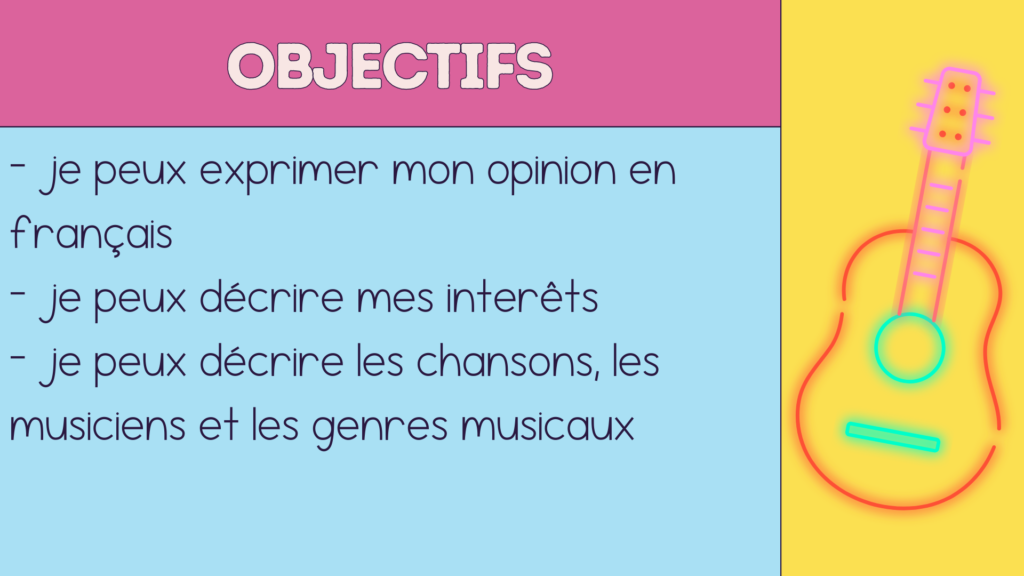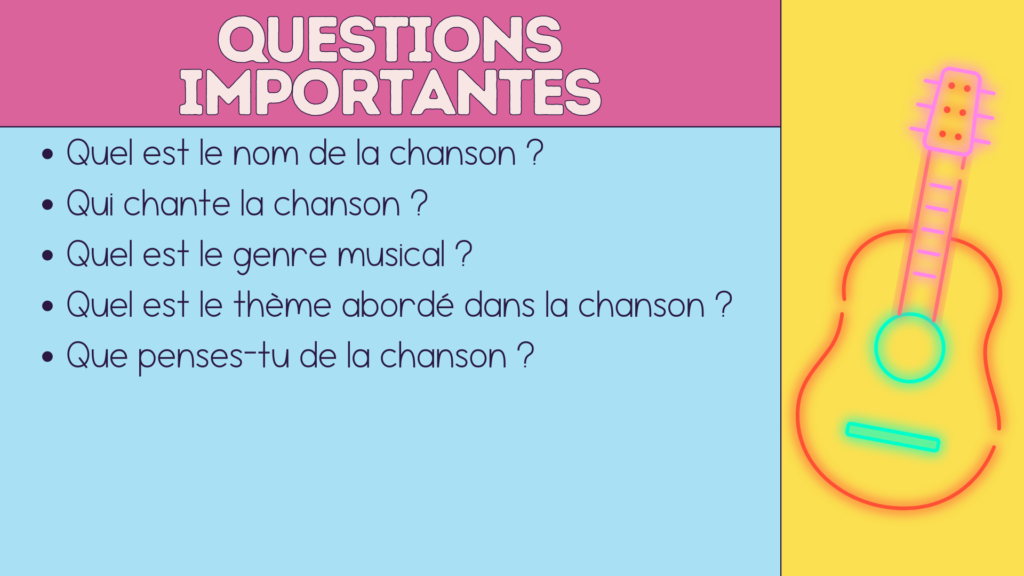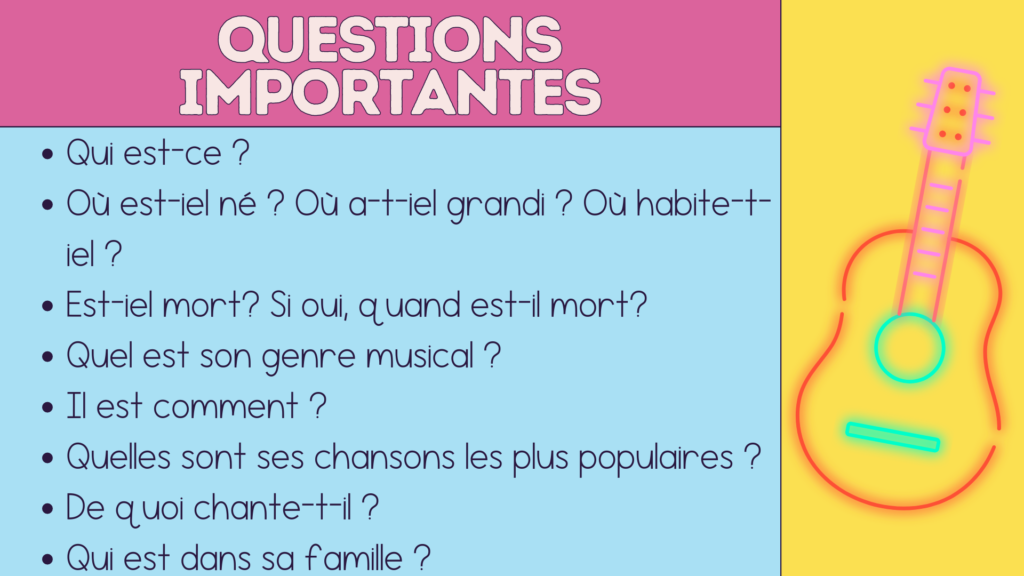
Why does French unit planning feel like the most difficult task? Sitting down and planning units is one of the most basic parts of our jobs as teachers. However, it often feels like an impossible task. Over the years, I think that I finally figured out how to do this in a way that works best for me. If you are a Core French teacher, I hope you will find the strategies in this blog post to be super helpful.
But first – a bit about my teaching context.
I teach high school Core French in British Columbia. My periods are generally 75 minutes long. I teach students for a full semester of the school year and then they move on to summer and/or a new semester.
In British Columbia, we have shifted to standards-based assessment. Here is a link to the curriculum if you’re interested in reading what our standards are. Our French standards do not prescribe the teaching of specific grammar structures in each course. We teach our students to communicate and culture and communication are intricately tied.
Now that we’ve figured that out, let’s go ahead and plan our French unit.
STOP! DOWNLOAD THIS FREEBIE BEFORE YOU SCROLL
A quick disclaimer
This is what has worked for me so far. However, my pedagogy is always evolving.
Please also note that I also teach with structured daily and weekly routines. Therefore, my units are not the only exposure to reading, writing, listening, and speaking my students experience.
French Unit Planning #1 : What are your goals as a French teacher?
There are so many different pedagogies when it comes to teaching French. Here are my three personal pedagogical priorities :
- facilitate proficiency in the French language
- teach about Francophone and non-Francophone cultures
- foster intercultural awareness
French Unit Planning #2 : Select your standards
Start at the end, what do you want your students to be able to do and to understand by the end of the unit?
For the purposes of this blog post, I am planning for a French 11 course. Here are my selected standards (from the BC Curriculum) :
Big ideas :
- Listening and viewing with intent supports our acquisition of French
- Language and culture are interconnected and shape our perspective, identity, and voice
Curricular competencies (I can statements) :
- I can engage in meaningful conversations on a variety of topics of interest
- I can express myself with increasing fluency, both orally and in writing
Content :
- I can communicate in past, present, and future time frames
- I can make predictions
- I can speak about my own personal interests
- I can express my own opinions
French Unit Planning #3 : Next, what is your theme? What grammatical and vocabulary topics will your students need to know and practice by the end of the unit? Level of language?
Now that we’ve selected our standards, it’s time to figure out the following :
- your students’ level of language (novice, intermediate, advanced or somewhere in between these levels)
- your chosen theme for the unit
- what vocabulary will you incorporate into the unit?
- what grammatical structures do you want your students to become proficient in communicating?
French Unit Planning #4 : What will the final summative assessment look like?
When you’re planning your French unit, you want your final summative assessment to reflect the learning from the unit. Here are some examples?
- French music unit? Your final assessment could be a music video project, a presentation discussing a song, etc.
- French food unit? Your final assessment could be a recipe project where students film themselves making a recipe
On the very first day I introduce the unit to my students, I begin with unit objectives. Here are the unit objectives I’ve pulled from my French music unit :

I then break down these unit objectives into questions I want my students to be able to respond to orally and in writing by the end of the unit.
Please note that I do not introduce these to my students all at once. I introduce these to my students a few at time.
Every reading, writing, listening, and speaking activity I plan in the unit comes back to these questions.
Finally, these are the questions that I want my students to answer in their final summative assessment.
Here are the questions :


French Unit Planning #5 : Start with input (listening and reading)
During the first 60-70% of the unit, I am providing rich input opportunities. This means that I am planning rich, meaningful, and engaging French listening and French reading opportunities for each class.
Ideas for listening input :
- YOU!
I know! You probably weren’t expecting this one. For novice and intermediate levels, it can be really tough to find rich French listening activities. If the resource is too difficult, your students will actually get nothing out of it.
Therefore, you can be the listening opportunity. You can do map talks, picture talks, and movie talks that are connected to your chosen theme, standards, and topics.
Special tip *** I often find French videos that are text-only on YouTube. I turn these videos into interactive lessons where I pause and talk over the video and ask students questions about the text they are reading. The whole lesson is in French!
In terms of rich French reading comprehension tasks, I have written my own because I could never find what I needed on the Internet.
In this part of the unit, the goal is to expose your students to as much listening and reading as possible.
French Unit Planning #6 : now build in the output
Now it’s time to build in the output.
What speaking and writing opportunities do you want to create? Remember to link them to your question goals + unit objectives.
Formative and summative assessment
The summative assessment is already planned. What formative assessment opportunities will you create?
Final project time
When it comes to working on the final project, I break it down into many chunks. At the end of each class, one task is due.
My rule of thumb is I do not assign projects that I do not want to mark. I assign a mix of group, partner, and individual projects.
I hope this blog post was helpful to you!
How do you plan your units?


